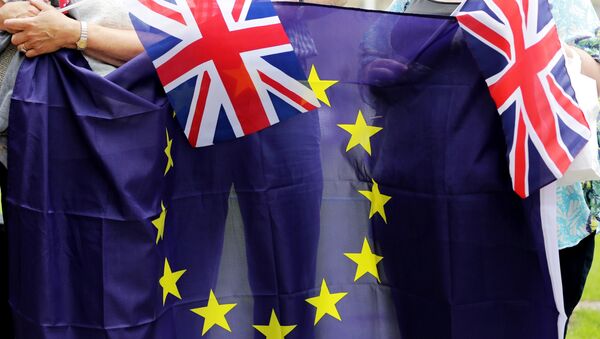"The UK within the EU has a far greater power and clout to be able to negotiate better terms [for multilateral deals] than what it can have outside the European Union," Ali said.
"Had we been outside the EU, I would claim that the UK already would have brokered an arrangement with the US, which would have been far less beneficial for the citizens, it would have been done behind the closed doors, and nobody would have known about it. It would have been worse," Ali concluded.
Brexit if happens will not be a remedy to solve migration issues, including pressure on public services, that the United Kingdom is facing, as the real problem is lack of funding from the government, Shahrar Ali stated.
"Migration issue is for sure the one which is motivating a lot of people to come out of the EU, because they think, which in my opinion is a very questionable assumption, that a lot of the pressure on public services will be reduced if there is less economic migration, in particular from Eastern European states," Ali said.
According to the politician, economic migration is an "overall net benefit" for the UK budget, as people coming to the kingdom and working hard there are "not actually net drain on the resourcing" of the country.
Moreover, the possible UK exit from the EU will be devastating for Britain's high profile in the sphere of education and knowledge economy, Shahrar Ali said.
"In the universities, lots of funding comes from the European Union. What would happen to their projects and our knowledge economy if we were to pull out? That would be pretty devastating for workers on the ground across the UK universities. We have an international profile [in knowledge economy], which is going to be damaged," Ali said.
Vice-Chancellors of nearly 100 major UK universities in an open letter published on Tuesday warned about negative impact of Brexit on the United Kingdom's global positions in education, science and innovation.
On Thursday, the British voters will decide in a referendum on whether their country should stay in or leave the European Union. The referendum was scheduled after UK Prime Minister David Cameron and the leaders of the 27 EU member states agreed in February to grant the United Kingdom a special status within the bloc.




